
TEHRAN, Mar. 19 (MNA) – Paris police clashed with demonstrators for a third night on Saturday as thousands of people marched throughout the country to protest against the controversial pension reform.
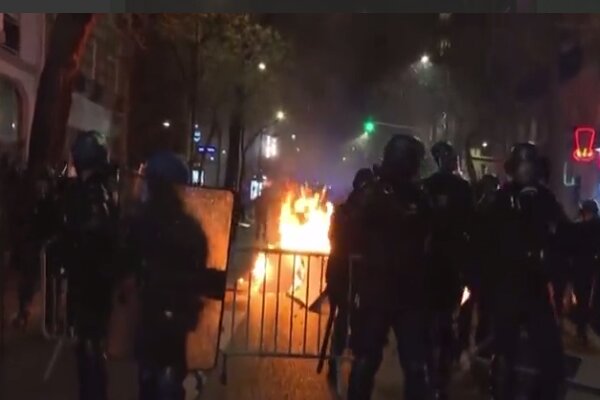


India is likely to see its gig workforce add 9-11 million jobs by 2025, which has been one of the most pivotal economic shifts in a long time
Updated On – 06:36 PM, Sat – 18 March 23

New Delhi: With a spurt in online food and grocery delivery, especially in the pandemic years, India saw a meteoric rise in the gig economy, giving millions of people job opportunities.
However, delivering hot and piping food at customers’ doorsteps has become a nightmare for many of them as the food delivery business turns out to be a losing game while more and more delivery partners report unfair work conditions, pay disparity, and harassment.
India is likely to see its gig workforce add 9-11 million jobs by 2025, which has been one of the most pivotal economic shifts in a long time.
In terms of job roles, door delivery is the most prevalent gig role employers are hiring for currently — 22 per cent for food and 26 per cent for other deliveries, according to a recent study by leading job portal Indeed.
According to reports, a typical delivery boy’s salary is Rs 15,000 per month. Delivery Boy salaries at Zomato and Swiggy can range from Rs 4,804-Rs 30,555 per month depending on which area they are working in.
Gig workers are freelancers or contractors who work independently, typically on a short-term basis for multiple clients. Their work may be project-based, hourly, or part-time.
However, when it comes to fair work for gig workers among the digital platform economy in India, Zomato, Swiggy, and quick-grocery delivery providers Dunzo and Zepto are among the worst performers across parameters related to the working conditions of gig workers, according to the latest ‘Fairwork India Ratings 2022 Report’.
According to professor Balaji Parthasarathy, one of the principal investigators of the team, these findings are alarming for all stakeholders — government, consumers and platform owners — and they should come together to help gig workers get the best working conditions.
“We would like the government and other stakeholders like consumers and digital labour platform owners to take note of these findings and ensure a better work environment for millions of gig workers in 2023,” Parthasarathy said.
The Fairwork India team was spearheaded by the Centre for IT and Public Policy (CITAPP), International Institute of Information Technology Bangalore (IIIT-B), in association with Oxford University in the UK.
Even with workers and worker groups repeatedly emphasising the importance of a stable income for platform workers, platforms have been reluctant to publicly commit to, and operationalise, a minimum wage policy.
“Secondly, while workers have engaged in various forms of collective action to voice their concerns in the platform economy, platforms have been uncompromisingly unwilling to recognise or negotiate with any collective body representing workers,” the findings showed.
According to the report, the promise of flexibility of the digital platform economy raises as many questions about livelihoods as it offers opportunities.
“We hope the report provides the basis for an interpretation of flexibility that allows for not merely the adaptability that platforms seek, but also the income and social security that workers lack,” said Parthasarathy and Janaki Srinivasan, the Principal Investigators of the team.
The biggest barriers for gig workers are lack of access to job information (62 per cent), not knowing English (32 per cent), and not knowing the local language (10 per cent) for workers who have shifted outside of their home town for work.
Challenges in language also result in other difficulties with 14 per cent of the gig workforce respondents reporting a lack of awareness of their jobs’ skills and abilities, according to Indeed study.
Nearly three out of five gig workers (59 per cent) find their jobs uncomfortable (46 per cent), if not hard and risky (13 per cent).
The government has also cracked a whip on online food aggregators in the recent past.
Last year, the Competition Commission of India (CCI) ordered a thorough investigation into the conduct of online food delivery platforms Zomato and Swiggy over alleged involvement in delayed payment cycle and exorbitant commissions.
Following a complaint from the National Restaurant Association of India (NRAI), the CCI said that it is of the view that there exists a prima facie case with respect to some of the conduct of Zomato and Swiggy, “which requires an investigation by the Director General (DG), to determine whether the conduct of platforms have resulted in contravention of the provisions”.
The NRAI had alleged that the commissions that are charged from restaurants are “unviable” and “are to the tune of 20 per cent to 30 per cent, which are extremely exorbitant”.
The Department of Consumer Affairs also asked online food business operators to improve their consumer grievance redressal mechanism amid rising complaints from customers.
The Delhi High Court last month postponed the hearing on petitions to April 12, filed by restaurant associations contesting the rules that forbid hotels and restaurants from automatically adding a service charge to meal bills.
The Central Consumer Protection Authority (CCPA), under the Department of Consumer Affairs, released the rules last year, and the high court stayed them.
The CCPA has sought dismissal of pleas and said in its affidavit that the petitioners have totally failed to appreciate the rights of the consumers by adopting an unfair method, which is unlawful as no service is separately provided to consumers.
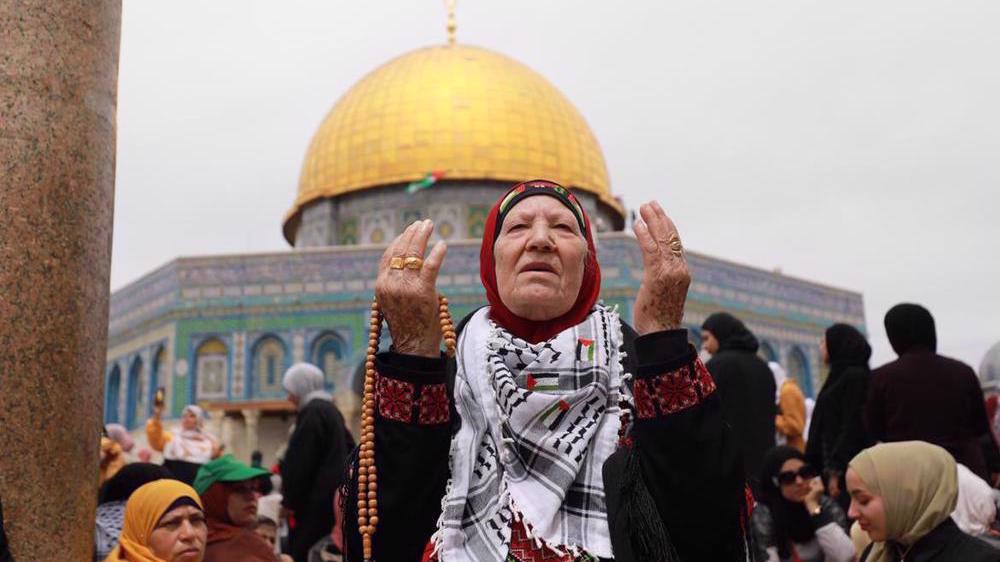
The Palestinian resistance movement Hamas has said the Israeli regime is fearful of the Muslim fasting month of Ramadan amid growing anti-occupation outrage in the Palestinian territories, warning that the illegal entity plans to wage a “religious war” against the al-Aqsa Mosque and the occupied al-Quds.
Mohammed Hamada, a spokesman for Hamas, was cited by Palestine’s Shehab news agency as making the comment following weeks-long Israeli-provoked tensions and violent raids in the Palestinian towns and cities ahead of Ramadan.
“The occupation fears the month of Ramadan with all its details, and is turning the city of al-Quds into a military barracks to control it,” Hamada said.
Stressing that the Israeli regime is “pushing towards a religious war against al-Aqsa Mosque and al-Quds,” the Hamas spokesman said the areas of the Moroccan Gate, also known as the Mughrabi Gate, and al-Buraq Wall (the Western Wall) are among the “most sensitive and dangerous” places for the illegal entity.
“Our people will not allow the occupation to attack the blessed al-Aqsa Mosque, and that the aggression against al-Aqsa Mosque is a detonator that could explode at any moment,” Hamada added.
حمادة: الاحتلال يخشى شهر رمضان بكل تفاصيله ويحول القدس إلى ثكنة عسكرية للسيطرة عليها
تفاصيل: https://t.co/exJKrhmFFh
— وكالة شهاب للأنباء (@ShehabAgency) March 18, 2023
The Hamas official said the Tel Aviv regime is waging a campaign of arrests and deportations in order to judaize the occupied al-Quds and bears full responsibility for the barbaric aggression against the al-Aqsa Mosque.
“The occupation is under a delusion to think that the aggression against al-Aqsa Mosque will be without a price, the bond of our people in al-Aqsa Mosque will thwart the occupation’s plans,” Hamada noted.
Salah al-Aruri, deputy head of the Hamas political bureau, warned Israel on Tuesday against “violations” at the al-Aqsa Mosque compound during the upcoming Muslim holy month of Ramadan amid renewed tensions in the occupied territories.
The holy fasting month of Ramadan has often coincided with rise in violence between Palestinians and Israelis, particularly at al-Aqsa, Islam’s third holiest site.
Under the protection of Israeli forces, illegal Israeli settlers have violently stormed al-Aqsa during Ramadan, attacking Palestinian worshipers inside the compound.
In January, Israel’s far-right security minister Itamar Ben-Gvir entered the al-Aqsa Mosque’s courtyards in a highly provocative move, with Palestinians condemning the intrusion as a violation of international law and al-Aqsa’s historical status quo.
The Jewish visitation of al-Aqsa is permitted, but non-Muslim worship is prohibited according to an agreement signed between Tel Aviv and the Jordanian government in the wake of Israel’s occupation of East al-Quds in 1967.
Tensions have increased in the occupied territories since late December 2022, when Benjamin Netanyahu returned to power as head of the occupying regime’s most far-right cabinet ever.
Over the past months, Israel has ramped up attacks on Palestinian towns and cities throughout the occupied territories. As a result of these attacks, dozens of Palestinians have lost their lives and many others have been arrested.
Most of the raids have focused on Nablus and Jenin, where Israeli forces have been trying to stifle a growing Palestinian resistance in the occupied cities.
Since the start of this year, at least 88 Palestinians, including 17 children and one woman, have been killed by Israeli forces, according to the Palestinian health ministry.
Local and international rights groups have condemned Israel’s excessive use of force and “shoot-to-kill policy” against Palestinians.
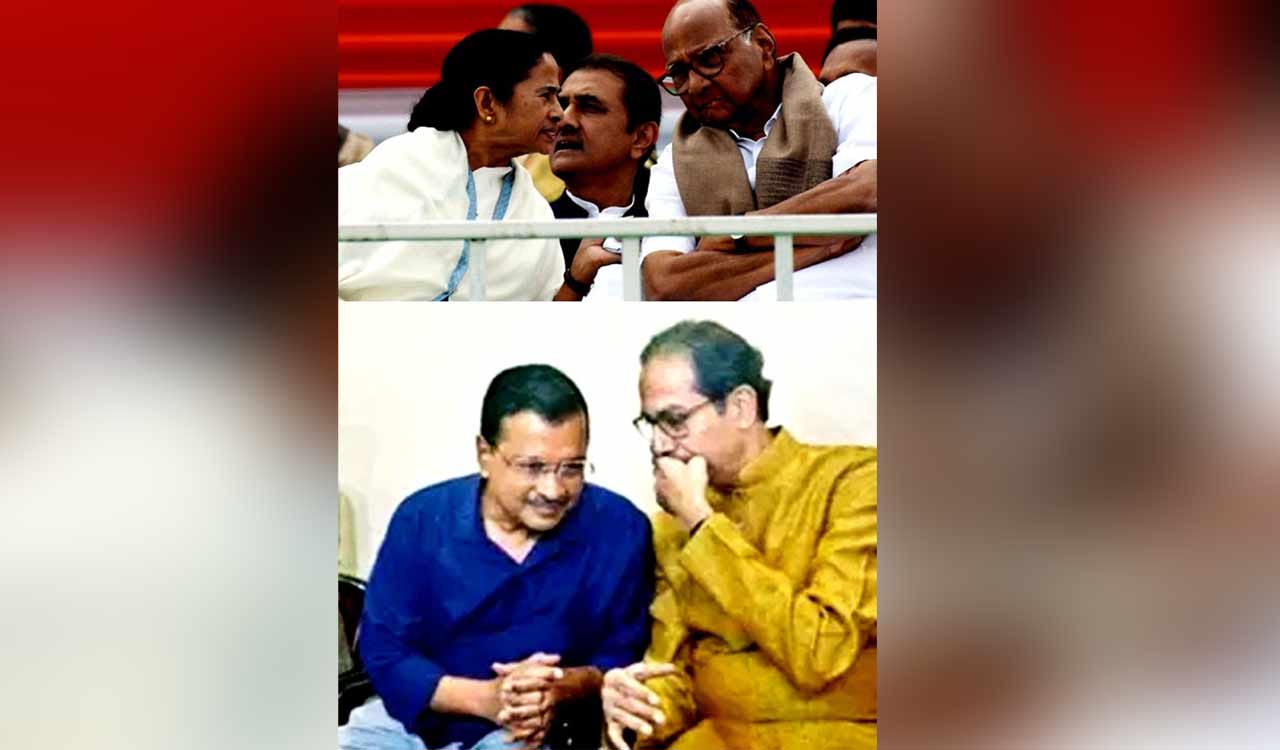
Banerjee plans to rope in others like Biju Janata Dal President and Odisha Chief Minister Naveen Patnaik plus Bharat Rashtra Samithi President and Telangana Chief Minister K. Chandrashekar Rao and other leaders soon.
Updated On – 11:36 AM, Sun – 19 March 23

Mumbai: With the countdown to the 2024 Lok Sabha elections on, all major Opposition parties, including the regional forces, are bracing for a big political battle to oust the ruling Bharatiya Janata Party, and a situation akin to 1996 emerging not ruled out.
Machinations are on in a big way for the past couple of years with several local, regional or national level ‘conclaves’ of Opposition parties being held at regular intervals, raising — and then dimming — hopes of the entire pack uniting to lock horns with the BJP and its allies.
The latest in the series is the effort by Trinamool Congress President and West Bengal Chief Minister Mamata Banerjee, and Samajwadi Party President and ex-Uttar Pradesh CM Akhilesh Yadav, who have agreed to keep “equidistant” from the BJP and the Congress.
Banerjee plans to rope in others like Biju Janata Dal President and Odisha Chief Minister Naveen Patnaik plus Bharat Rashtra Samithi President and Telangana Chief Minister K. Chandrashekar Rao and other leaders soon.
Maharashtra’s Opposition front, Maha Vikas Aghadi (MVA) comprising the Congress, the Nationalist Congress Party, and the Shiv Sena-UBT are closely watching the developments, with a few senior leaders wondering whether the new associations are coming up to take on the BJP or hammer the Congress!
Many parties from the other southern states like Andhra Pradesh, Tamil Nadu, Kerala and Karnataka, the Janata Dal-U of Bihar Chief Minister Nitish Kumar and Rashtriya Janata Dal in Bihar, the Aam Aadmi Party, and other regional forces are also monitoring the unfolding situation, compounding the confused scenario.
The MVA leaders, particularly NCP and Sena-UBT have made it clear on record that “no Opposition unity is possible by excluding Congress”, and junk theories of “Congress being isolated” or “Rahul Gandhi spelling doom” for the Opposition, and so on.
While admitting that there’s no clear wave against the BJP, a Sena-UBT leader claimed that the current mood of the nation is quickly sliding to “anti-BJP”, with the blatant attempts made to “finish off” the opposition or regional parties, the misuse of central agencies and the onslaught on all democratic institutions.
Concurring, a NCP functionary said that the BJP will be made accountable for mishandling of the economy, failure to control inflation and arrest unemployment, frittering resources on showpiece projects or mega-events, et al.
A senior state Congress leader, preferring anonymity, feels the scenario in 2024 would be daunting for the BJP at even more levels.
This time, a total of around 14 per cent new voters will be added, besides 20 per cent minority voters – the latter having an average voting record of barely 38-42 per cent.
“The new voters will come with huge hopes for their future and the current scenario barely inspires confidence in them… Perhaps for the first time since 1989, even the minorities will turn out in huge numbers and return to the Congress fold,” he contended.
A Sena-UBT office-bearer said that the grassroots trend is slowly emerging — “who or which alliance” can help defeat the BJP and they will vote accordingly — in Maharashtra, this sentiment alone could fetch the MVA between 35-38 seats (out of 48 Lok Sabha seats).
The NCP’s recent move to support the Nationalist Democratic Progressive Party (NDPP)-BJP alliance raised not only political eyebrows but questions on the GrandMaster Sharad Pawar’s future strategy, though he remains the most “well-regarded” senior politician.
Sena-UBT and Congress leaders speculate that in case of an adverse ruling in the ongoing Supreme Court challenge to the Chief Minister Eknath Shinde-led Shiv Sena, the NCP could spring some uncomfortable surprises.
At the national level, the BJP-led NDA would remain strong in its bastions like Gujarat, Uttar Pradesh, Madhya Pradesh, and partly in Delhi, Rajasthan, Haryana, Punjab, Himachal Pradesh, Uttarakhand, and the northeast.
The Congress-led UPA is likely to “exceed expectations”, and attract more parties into its caravan in the coming months, especially from the south and west.
“This time, most regional parties are seriously regrouping due to a fear of the Central investigation agencies being unleashed if the BJP returns … Many are clear that it’s a ‘now-or-never ballgame’ they can’t afford to lose,” said another NCP office-bearer.
As per a MVA leader’s calculations, the Congress may bounce back to the 1996-level getting around 140-plus seats, the BJP may be restricted below 200, and the rest could be shared in big and small chunks by the other Opposition/regional parties.
However, there are also apprehensions that the BJP may resort to some big “political or economic sensationalism” in the run-up to the Lok Sabha polls which could help it to attract the fence-sitters or Hindutva doubting-thomases, and up its potential tally significantly for a comeback.
A couple of Congress and Sena-UBT leaders grimly remarked that wherever the Opposition fails to unite, it will “benefit only BJP” and every parliament seat that will witness a triangular or multi-cornered contest can be safely written off beforehand.
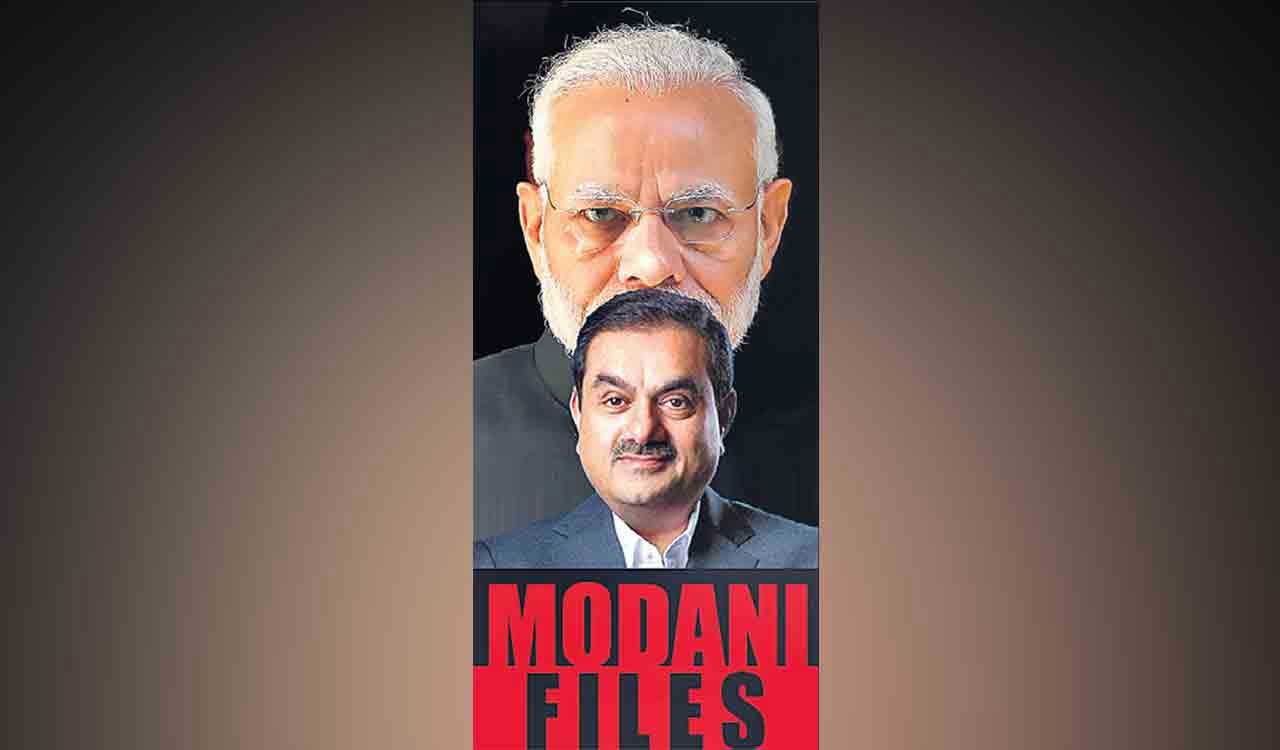
This massive, coal-fired power plant of the Adani Group in Jharkhand’s Godda, is quite a strange entity
Published Date – 11:45 PM, Sat – 18 March 23

This massive, coal-fired power plant of the Adani Group in Jharkhand’s Godda, is quite a strange entity. First of all, it came up despite mass protests and objections from local farmers and people, negative environmental impact reviews and even State officials.
The even stranger part is that the electricity produced in this plant is not for Jharkhand or for India. The entire power will be exported to Bangladesh. Even the coal used to generate the power is not from any local mine, but largely from Adani’s mines in Australia.
Why this is pure irony is because Jharkhand is a resource-rich State, accounting for more than 40 per cent of the mineral resources of India, with the Adani project situated amid some of the richest coal deposits in the nation.
There is more irony when we come to the part where Bangladesh is purchasing the power. In June 2015, Prime Minister Narendra Modi went on a trip to Bangladesh and in a joint declaration with the Prime Minister of Bangladesh, said, ‘we can do more together in the power sector, here and in India.’
Barely two months later, on August 11, an MoU was signed between Adani Power Limited and the Bangladesh Power Development Board for APL to set up a 1600 MW coal-power plant at a suitable location in India to supply electricity to Bangladesh.
By December 18, Adani Power (Jharkhand) Limited was formed, an SPV, and an unsolicited proposal was sent to BPDB about the proposed plant in Jharkhand.
In March 2016, APL requested the Jharkhand government to allocate around 1000 ha of land in Godda district for the project. The BJP-government in Jharkhand began dutifully acquiring 917 acres of land and in March 2017, using dubious tactics, even got indigenous tribes and local villagers evicted from their ancestral land.
By October 2016, the government also changed the long-standing energy policy that required that a power producer located in the State to supply at least 25% of the electricity generated at its plants to the State at a concessional price, thus allowing Adani to export 100% of the generated capacity to Bangladesh on the promise of an alternative source of supply of power by Adani.
The State Audit said the revised terms could cost the State an additional Rs 296.40 crore every year. Over the course of 25 years – the duration of Adani’s power purchase agreement with Bangladesh – Jharkhand could end up paying the company an additional Rs 7,410 crore for this alternative source of power supply.
There were more instances of rules being broken, changed and bent to suit Adani. In February 2018, APL applied for the creation of an SEZ at the Godda site. However, the Commerce Ministry in 2016 had specifically prohibited SEZs around a single power plant. The application was rejected.
By February 2019, the same Commerce Ministry changed the SEZ regulations, and a month later, the Adani project in Jharkhand became the first standalone power project in India to get the status and benefits of a Special Economic Zone. The decision bestows huge tax savings.
Now to the bigger irony that we talked about earlier. The entire power generated from Godda is being exported to Bangladesh, which is already a power-surplus country, and has 40 percent more power generation capacity than peak demand.
But the deal with Adani, literally forced upon Bangladesh since the then government did not want to rub Modi on the wrong side, now requires Bangladesh to pay Adani roughly $450 million a year in capacity and maintenance charges regardless of whether it generates any electricity.
Transport/shipping costs of imported coal and transmission costs of an Adani-built high-voltage line across the border too will be passed on to Bangladesh. It is estimated that Adani’s electricity will cost more than five times the market price of bulk electricity in Bangladesh.
Last heard, the BPDB had asked for a review of the agreement, with voices within Bangladesh too now getting louder against the atrocious deal. But then, Adani has already made his coal empire safe, with the Modi government continuing to help him unearth more of the buried sunshine.

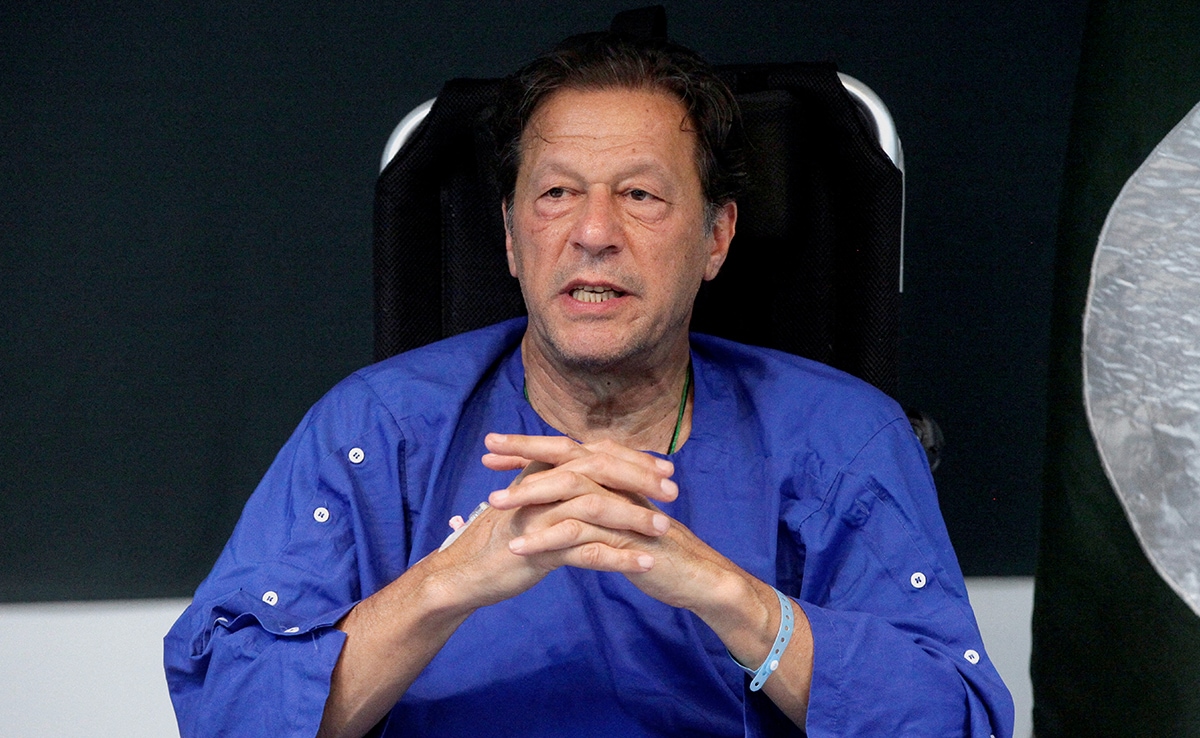

Imran Khan arrived in Islamabad from Lahore to appear before the court. (File)
Islamabad:
Pakistani police on Sunday registered a terrorism case against Imran Khan and over a dozen PTI leaders for indulging in vandalism, attacking security personnel and creating unrest outside the judicial complex in Islamabad ahead of a court hearing in a graft case involving the ousted premier.
Clashes erupted outside the Islamabad Judicial Complex on Saturday when Mr Khan arrived in Islamabad from Lahore to attend a much-awaited hearing in the Toshakhana case.
During the confrontation between Pakistan Tehreek-e-Insaf workers and police, over 25 security personnel were injured, prompting Additional District and Sessions Judge Zafar Iqbal to defer the court hearing till March 30.
The case was registered against arrested PTI workers and wanted party leaders. About 17 PTI leaders were named in the FIR lodged by the Islamabad Police, Geo News reported.
The FIR states that the workers damaged the police check post and the main gate of the judicial complex, it said.
As many as 18 people were arrested for arson, pelting stones and breaking the judicial complex’s building, said the FIR.
“About two police vehicles and seven motorcycles were burned, and the official vehicle of the station house officer (SHO) was damaged,” it added.
Imran Khan, 70, arrived in Islamabad from Lahore to appear before the court. He was accompanied by his supporters in a convoy.
Soon after he departed for Islamabad to attend the hearing, over 10,000 armed Punjab police personnel breached Mr Khan’s Zaman Park residence in Lahore and arrested dozens of his party workers.
The police personnel, using a power shovel, removed the barricades and tents at the entrance of the Pakistan Tehreek-e-Insaf party chief’s residence and evicted hundreds of his supporters camping there to prevent Khan’s arrest in the Toshakhana case.
They conducted a search at the house after demolishing its main gate and walls. Punjab Police, whose action ended later, were reportedly met with resistance from PTI workers from inside, resulting in violence. About 10 workers were reportedly injured in the police operation in Lahore.
PTI leader Fawad Chaudhry said on Sunday said the party will get cases registered against police officers involved in the “illegal operations” and violence at Mr Khan’s residence.
“Today, a meeting of the legal team has been called. The way in which the police defied the Lahore High Court’s decision entering Imran Khan’s residence has trampled every rule of the home’s sanctity. [things were] stolen. [They] also took away juice boxes. Innocent people were subjected to torture,” he tweeted.
“Defying court order is unforgivable. The high court should guard its judgment. Cases are being registered on all police officers who conducted illegal operations and were involved in violence,” he said.
Earlier, Imran Khan appeared before Lahore High Court on Friday and assured that he was ready to present himself on Saturday before Additional District and Sessions Judge (ADSJ) Iqbal handling the corruption case against him.
The PTI chief has been in the dock for buying gifts, including an expensive Graff wristwatch, he had received as the premier at a discounted price from the state depository called Toshakhana and selling them for profit.
Established in 1974, the Toshakhana is a department under the administrative control of the Cabinet Division and stores precious gifts given to rulers, parliamentarians, bureaucrats, and officials by heads of other governments and states and foreign dignitaries.
The cricketer-turned-politician was disqualified by the Election Commission of Pakistan (ECP) in October last year for not sharing details of the sales. The top electoral body later filed a complaint with the district court to punish him, under criminal laws, for selling the gifts he had received as prime minister of the country.
Mr Khan was ousted from power in April last year after losing a no-confidence vote, becoming the first Pakistani prime minister to be voted out by the National Assembly.
(Except for the headline, this story has not been edited by NDTV staff and is published from a syndicated feed.)
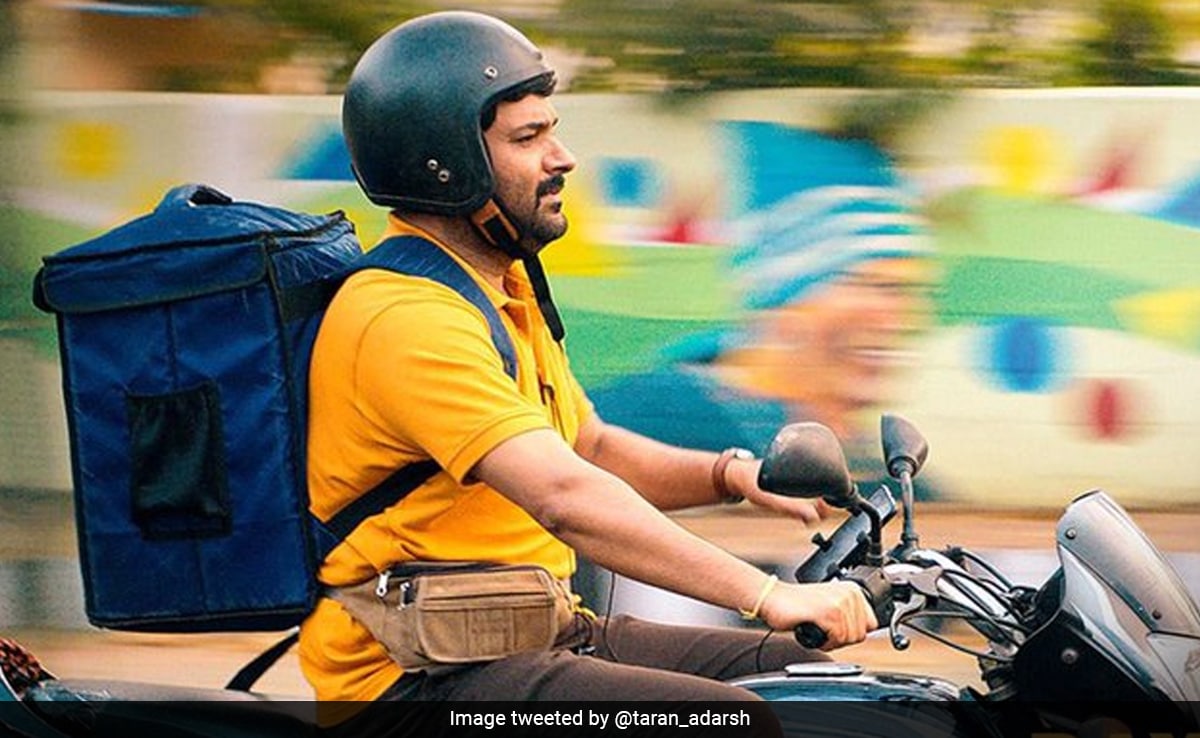

Taran Adarsh shared this picture. (courtesy: @taran_adarsh)
Zwigato, directed by Nandita Das, has seen a rise in its box office earnings after a rather dull start. As per Bollywood trade analyst Taran Adarsh, the film saw a jump of over 44% at the box office. However, he added that the total earnings remained low. In his tweet, he said: “#Zwigato witnesses an upward trend on Day 2 [+44.19%], but the 2-day total remains very low due to its biz on Day 1… Biz needs to have a miraculous turnaround/jump on Day 3 for a respectable weekend total… Fri 43 lacs, Sat 62 lacs. Total: ₹ 1.05 cr. #India biz.” He attached the data to a still from the film featuring lead actor Kapil Sharma.
#Zwigato witnesses an upward trend on Day 2 [+44.19%], but the 2-day total remains very low due to its biz on Day 1… Biz needs to have a miraculous turnaround/jump on Day 3 for a respectable weekend total… Fri 43 lacs, Sat 62 lacs. Total: ₹ 1.05 cr. #India biz. pic.twitter.com/DY5eReLa6J
— taran adarsh (@taran_adarsh) March 19, 2023
On its opening day, as per Taran Adarsh, Zwigato only earned ₹42 lahks. He said on Twitter: “Released at limited screens [409] and shows, Zwigato puts up a dull score on Day 1… The word of mouth is positive, but it needs to convert into footfalls over the weekend… Fri ₹ 42 lakh India biz.”
Kapil Sharma’s Zwigato clashed with Rani Mukerji’s Mrs. Chatterjee Vs Norway at the box office on its release day (March 17).
Released at limited screens [409] and shows, #Zwigato puts up a dull score on Day 1… The word of mouth is positive, but it needs to convert into footfalls over the weekend… Fri ₹ 42 lacs. #India biz. pic.twitter.com/WAgPXpGK09
— taran adarsh (@taran_adarsh) March 18, 2023
Despite the modest earnings, the Kapil Sharma film has impressed critics. NDTV’s Saibal Chatterjee said, “The male protagonist is Manas Mahto (Kapil Sharma cast in a role that one would hardly believe is cut out for him), a food delivery boy who strays into the profession after losing the job of a factory floor supervisor. His soul-crushing routine hinges on numbers, timings, and ratings that, as Manas laments, has reduced him to a machine.”
Speaking about his character, Kapil Sharma said that he deeply resonated with Manas Mahto. He said: “I used to work at Coca-Cola. We all do small jobs here and there when we first come to Mumbai. The product was transported in trucks. There were no apps back then. But, when Nandita ma’am came to me and told me what all difficulties delivery guys face, I could relate to that story a lot.”
The film, which also features Shahana Goswami, premiered at the Toronto International Film Festival, Busan International Film Festival and the International Film Festival of Kerala ahead of its theatre release.

ATK Mohun Bagan held their nerves in a tightly-contested Indian Super League final as they defeated Bengaluru FC 4-3 on penalties
Published Date – 11:58 PM, Sat – 18 March 23

Fatorda: ATK Mohun Bagan held their nerves in a tightly-contested Indian Super League (ISL) final as they defeated Bengaluru FC 4-3 on penalties to lift the ISL title at the Jawaharlal Nehru Stadium here on Saturday.
In a game that ended 2-2 in regulation time, ATKMB’s Dimitri Petratos scored all three penalties he took on the night before Vishal Kaith’s save from Bruno Ramires’ penalty in the shootout brought them one step closer. Bengaluru FC’s Pablo Perez then sent his spot-kick over the bar as the Mariners sealed the result in a game where they had unsettled Bengaluru FC right from the start.
Bengaluru FC were forced into bringing Chhetri on early after Sivasakthi Narayanan was stretchered off in the opening seconds of the match. Things went further away from plan in the 13th minute when Krishna handled the ball from a Petratos corner as ATKMB were awarded a penalty. Petratos finished the job from the spot to put his team in front. ATKMB made use of this advantage to put pressure on Bengaluru FC, who picked up a glut of yellow cards on the pitch and one of them for head coach Simon Grayson.
But in the final minute of first-half stoppage time, they were given a way back earning a penalty when Subhasish Bose missed the ball and made contact with Roy Krishna while attempting a clearance. Chhetri stepped up to take it and sent Vishal Kaith the wrong way to restore parity.
In the final quarter of the game, Rohit Kumar’s shot from the edge of the box created a series of corners, before a deflection found Krishna at the far post – the striker nodded it home in the 78th minute.
But five minutes from time, the game was all square again. At the edge of the Bengaluru FC box, Kiyan Nassiri went down after a nudge from Pablo Perez as ATKMB won their second penalty of the evening. Petratos was on hand to score again.
In the third minute of stoppage time, Asish Rai’s goal-bound shot was cleared off the line by Prabir Das. Moments later, Colaco and Nassiri almost combined to score, but Bruno Ramires provided the crucial interception as the game went into extra time.
In extra time, Udanta Singh and Rohit failed to hit the target with their respective chances, while Manvir missed from a few yards out for ATKMB. Towards the end of extra time, Sandhu spilt Petratos’ long-range strike, but it bounced out for a corner that led to nothing before the game headed into penalties.
In the nervy penalty shoot-out, Golden Glove winner Kaith stepped up for his team for the second game in a row, while no one missed from the spot in a game dictated by penalties throughout. As the winners, ATKMB took home prize money of INR 6 crore, while runners-up Bengaluru FC were awarded INR 2.5 crore.

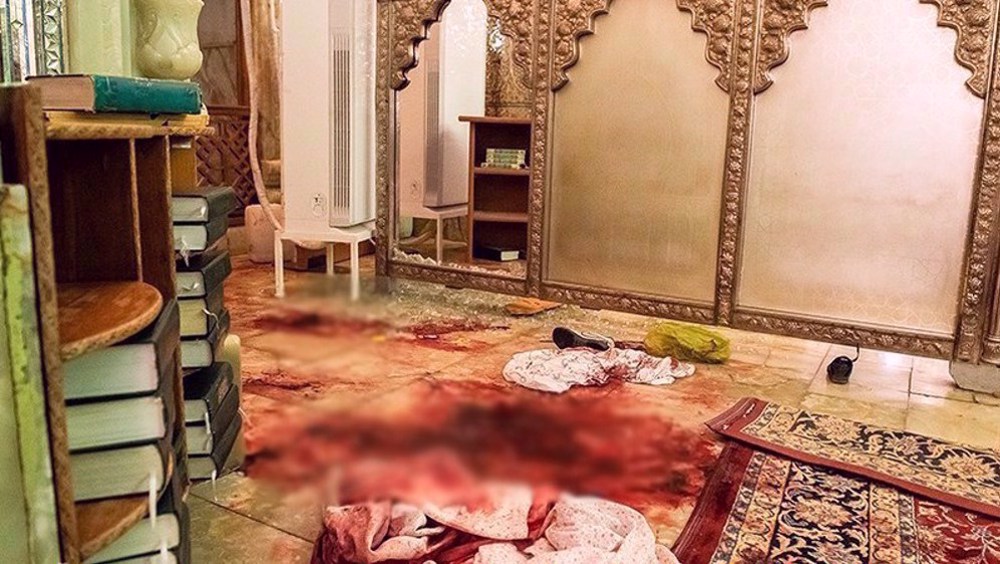
An Iranian court has handed out death sentences to two men over their involvement in a deadly terrorist attack last October on the Shah Cheragh shrine in the southern city of Shiraz.
Judiciary Chief of Fars Province Kazem Moussavi said on Saturday that the two main culprits of the terrorist attack were convicted of assisting in corruption on earth, armed rebellion and acting against national security.
He said the pair were directly involved in the arming, procurement, logistics and guidance of the main perpetrator of the terrorist attack on the Shah Cheragh.
The Daesh terrorist group claimed responsibility for the attack.
On October 26, 2022, an armed terrorist barged inside the revered holy shrine in Shiraz, killing 15 pilgrims, including women and children, and injuring dozens before he was arrested by security forces.
The terrorist was later pronounced dead at a hospital, succumbing to injuries sustained during the attack that sent shockwaves across the country.
A few suspects were immediately nabbed and some two weeks later the Intelligence Ministry announced the arrest of 26 Takfiri terrorists for involvement in the attack. The statement said the men were nationals of the Republic of Azerbaijan, Tajikistan and Afghanistan, and none of them are Iranians.
Moussavi further said that the two men sentenced to death have confessed that that they had been in contact with Daesh ringleaders and helped organize the attack.
The judicial official added that three other defendants in the case were also given prison sentences for five, 15 and 25 years for being members of the Daesh terrorist group and supporting it.
He noted that the verdicts against the five could be appealed before the Supreme Court.
During the latest session of a court in Shiraz on March 15, the third suspect identified as Naeim Hashem Qetali, an Afghan national, confessed to making preparations for supporting the prime attacker in Tehran and pleaded guilty to directly helping the attacker and financially supporting members of the group.
The court has accused him of aiding and abetting “corruption on earth” through financial participation and support for Daesh elements in Iran.
Leader of the Islamic Revolution Ayatollah Seyyed Ali Khamenei, in a message on October 27, pledged that the perpetrators of the “outrageous” crime will definitely face punishment.
“The grief of these dears and desecration of the shrine of Ahl al Bayt will, however, not be compensated unless through tracking these disastrous acts back to where they originate from and through adopting decisive and wise measures against it,” the Leader said.